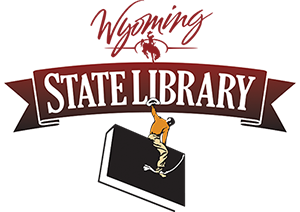The Gallaudet University Library has put together this helpful guide for librarians who work with deaf or hard of hearing patrons or with deaf-related collections that they’ve permitted us to repost here.
The first step in communicating with a person who is deaf or hard of hearing in a library setting is to determine the need. Some individuals will identify themselves as deaf or hard of hearing immediately. In that case, let the individual tell you the means of communication that works best for him. Others may be reluctant to identify themselves as deaf or hard of hearing. If an individual tilts his head toward you when you are speaking, speaks more loudly than usual, or just doesn’t seem to understand you, she may not be able to hear you clearly.
Communication styles and preferences vary. Some individuals use sign language, some read lips, some use assistive listening devices, and still others prefer to communicate in writing. Some may use a combination of these methods. Patience and careful attention are the keys to communication, regardless of the preferred method.
People who are deaf or hard of hearing rely heavily on visual cues, regardless of the specific means of communication. If you suspect a user cannot hear you, try some of the strategies suggested below. The following tips apply to all face-to-face communication encounters.
GENERAL GUIDELINES
- Face and lips must be visible (hands, papers, etc. should not be directly in front of your face)
- Choose a location that is well-lit
- Avoid standing with your back to any light source
- Look directly at the person with whom you are talking
- Avoid distracting background noise (conversations, printers, etc.); move to another location if necessary
GETTING THE PERSON’S ATTENTION
- Call him by name or title (such as “sir”)
- Tap her on the shoulder or arm
- Wave your hand (but not frantically)
- Make sure he is looking at you before you speak
- Tap on the table or counter
MANNERISMS
- Avoid eating, drinking, or chewing gum while talking
- Keep your hands away from your mouth
- Speak naturally — don’t exaggerate, shout, or speak too slowly
- Use natural facial expressions
- Use gestures
IN THE REFERENCE INTERVIEW
- Watch for language and literacy differences
- Repeat the question back to the user, in writing if necessary
- Use short sentences
- Use simple language and avoid unnecessary words
- Minimize use of idioms and colloquialisms
- Write important words as you speak and keep the paper in clear view
- Follow up to make sure the question has been answered
IN GROUPS
- Make sure the deaf or hard of hearing person is in the best location possible to satisfy communication needs (The best location may vary depending on the setting. Ask!)
- Avoid pacing and other distracting movements
- Make sure you face the deaf or hard of hearing person when you speak
- Use visual aids
- Allow the audience time to look at visual aids before speaking
- Prepare written instructions and handouts
- Repeat questions/comments from audience members
- Use hands-on activities
WORKING WITH AN INTERPRETER
- Look and speak directly to the deaf or hard of hearing person and not to the interpreter
- The interpreter will probably be a few words behind the speaker
- The interpreter is not a participant in the conversation or program and should not be brought into discussion or asked questions
- For a program or meeting
- Be aware there are different types of interpreting and ask users what they need
- Schedule interpreters well in advance (at least two weeks)
- Provide interpreter with copies of handouts and with the names of program/meeting participants and spelling of any technical terms or jargon before the program begins
- Make sure all arrangements (lighting, seating, interpreter preferences, client preferences, etc.) are worked out before the program/meeting begins
- If the interpreter is working alone give adequate breaks

